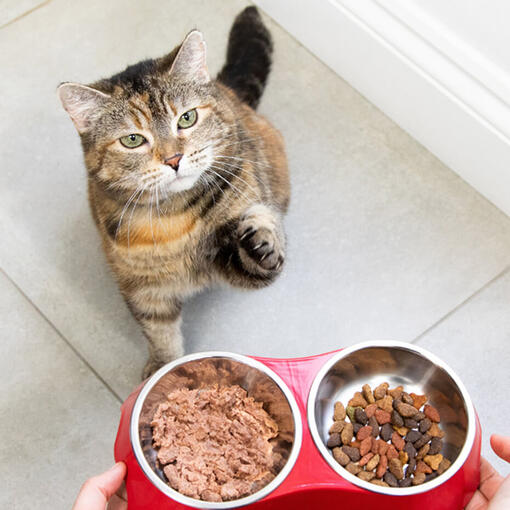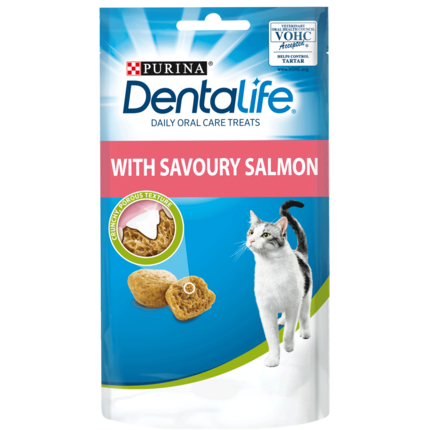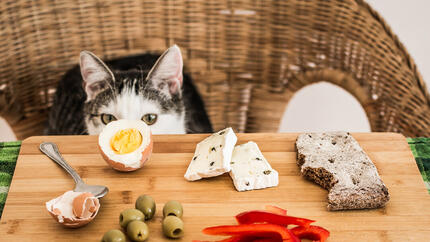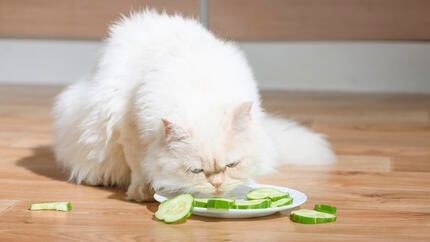
Mango is hard to resist. This exotic fruit often tempts us, with its lovely scent and sweet flavour. But what if it’s not just you eagerly waiting to dig into a bowl of mango cubes... Have you ever noticed your furry companion sitting next to you, hoping to do the same?
Some felines will be interested in anything they see their owner snacking on, and many cats are also curious about new things, so you may find your mango pieces will spark your cat’s interest. However, before sharing your fruit treat with your pet, find out whether or not cats can eat mango.
Can cats eat mango?
The flesh of a mango is generally safe for cats. However, while mangos aren’t actually toxic for cats, we would generally only advise to give a small piece to your moggie on the odd occasion. This is because, as with many fruits, a big part of the reason humans find mangos so delicious is because of their high sugar content.
On top of this, mangos offer little nutritional value to cats, meaning that it’s best for owners to look into treat options made specifically for moggies, as an alternative to human food. If you do decide to give your cat human food, always speak to your vet first.
Read more about how to treat your cat here.
Is mango good for cats?
Cats are obligate carnivores, and they get all the nutrients they need from high-quality feline diets containing animal protein. Although mango is full of nutrients that are good for humans, cats will not need the benefit of these alongside their complete and balanced feline diet. The vitamin C in this tropical fruit offers a great boost to us humans, but cats can produce their own vitamin C.
Cats can also get enough dietary fibre from their complete and balanced diet, so the amount contained in a few pieces of mango won’t make much of a difference for our pets. It’s also worth noting that too much fibre can also result in digestive issues. That being said, the fibre content in the occasional small piece of mango is generally not harmful to cats.
Mangos also have a high sugar content so, while a limited amount of mango flesh is generally okay for most cats, it can actually be a problem for moggies that are overweight or have underlying health conditions such as cat diabetes. For these moggies, it’s best to avoid giving mangos completely.
How should you offer mango to your cat?
If you and your vet decide that it’s okay for your furry companion to enjoy a cube of mango as a treat, make sure you never go overboard. One small cube will normally be enough to satisfy your cat’s curiosity.
Here are some other tips to consider when giving your cat mango:
- Remove the seeds
- Don’t let your cat eat the peel
- Cut it into small cubes that can be easily eaten by your cat
- Use fresh mango and avoid fruits in syrup or dried mango – as these products will have a very high sugar content
Symptoms to watch out for after feeding your cat mango for the first time
You’ve got the vet’s go-ahead, you’ve peeled the fruit, removed the seeds and cut it into small pieces. Now it’s time to see what your cat thinks. It’s always a good idea to keep an eye on your cat after feeding them something new. Symptoms such as vomiting or persistent diarrhoea should prompt you to seek your vet’s help. Watch out for signs of choking as well, so you can intervene promptly in case it becomes necessary, and always make sure you only feed your cat one small cube of mango every so often.
It’s also worth noting that mangos can taste quite acidic, so many cats won’t be keen! If your moggie isn’t interested, it’s best to try an alternative treat option.
Now that you know cats can eat mango, check out other fruits your cat might be interested in. Discover if cats can eat grapes and find out if you can give your cat bananas safely.










